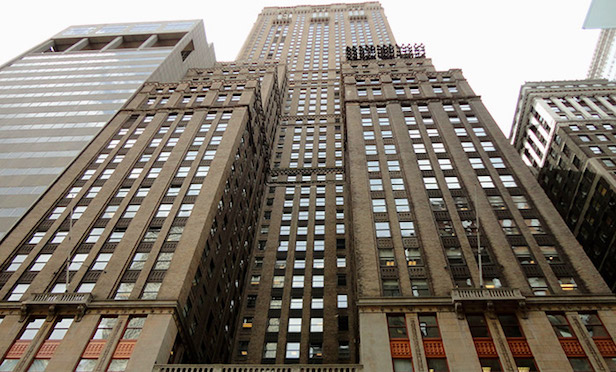
NEW YORK CITY—Alternative assets investors, while generally satisfied with the performance of their portfolios in recent years, see high pricing as a key challenge all closed-end private capital asset classes, according to Preqin's latest survey of institutional investors globally. In the real estate sector specifically, 72% of survey respondents see valuations as a key concern in the months ahead, while for private equity, the figure is even greater at 86%.
In addition, Preqin says 30% of respondents cited the eventual performance of private real estate funds as a prominent issue. Concerns over valuations and fund performance “feature highly among North America-based respondents, largely driven by recent political events and the subsequent uncertainty within the industry,” according to the firm's H2 2017 Preqin Alternative Assets Investor Outlook.
Seventy-eight percent of institutional investors currently invest in alternative assets, and 47% invest in three or more asset classes, according to Preqin's latest survey, conducted in June among 540 respondents globally. The most-targeted asset classes are private equity and real estate, with 56% of investors involved in each of these classes.
Across all asset classes, a greater proportion of investors are finding it harder to source attractive investment opportunities than are finding it easier. “Currently, investors face the challenge of choosing between more than 17,100 alternative assets funds which are open to investment, and fund managers face unprecedented levels of competition,” says Oliver Senchal, head of real estate products at Preqin. “These factors, as well as strong performance from the majority of alternative asset classes, and record levels of dry powder, have contributed to investors' increased concern over high pricing in the industry.
“As investors flock to alternatives, they are increasingly opting for bigger, more established firms,” Senchal continues. “This places pressure on less established fund managers, who are facing greater competition for the remainder of investor commitments and will have to find ways to stand out from one another in order to attract capital. However, strong long-term performance by alternatives have continued to entice investors to private capital, and we expect to see further expansion of the alternatives industry.”

In addition, Preqin says 30% of respondents cited the eventual performance of private real estate funds as a prominent issue. Concerns over valuations and fund performance “feature highly among North America-based respondents, largely driven by recent political events and the subsequent uncertainty within the industry,” according to the firm's H2 2017 Preqin Alternative Assets Investor Outlook.
Seventy-eight percent of institutional investors currently invest in alternative assets, and 47% invest in three or more asset classes, according to Preqin's latest survey, conducted in June among 540 respondents globally. The most-targeted asset classes are private equity and real estate, with 56% of investors involved in each of these classes.
Across all asset classes, a greater proportion of investors are finding it harder to source attractive investment opportunities than are finding it easier. “Currently, investors face the challenge of choosing between more than 17,100 alternative assets funds which are open to investment, and fund managers face unprecedented levels of competition,” says Oliver Senchal, head of real estate products at Preqin. “These factors, as well as strong performance from the majority of alternative asset classes, and record levels of dry powder, have contributed to investors' increased concern over high pricing in the industry.
“As investors flock to alternatives, they are increasingly opting for bigger, more established firms,” Senchal continues. “This places pressure on less established fund managers, who are facing greater competition for the remainder of investor commitments and will have to find ways to stand out from one another in order to attract capital. However, strong long-term performance by alternatives have continued to entice investors to private capital, and we expect to see further expansion of the alternatives industry.”
Want to continue reading?
Become a Free ALM Digital Reader.
Once you are an ALM Digital Member, you’ll receive:
- Breaking commercial real estate news and analysis, on-site and via our newsletters and custom alerts
- Educational webcasts, white papers, and ebooks from industry thought leaders
- Critical coverage of the property casualty insurance and financial advisory markets on our other ALM sites, PropertyCasualty360 and ThinkAdvisor
Already have an account? Sign In Now
*May exclude premium content© 2025 ALM Global, LLC, All Rights Reserved. Request academic re-use from www.copyright.com. All other uses, submit a request to [email protected]. For more information visit Asset & Logo Licensing.








